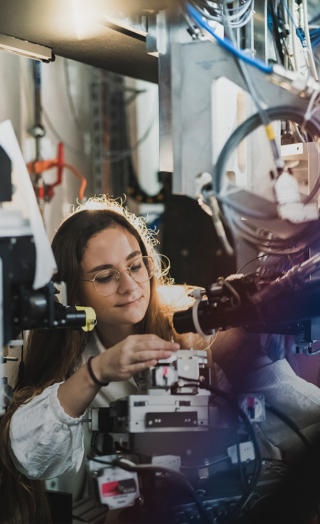Not so many places in the world offer research opportunities as the ESRF does. In my PhD, I study how to optimize the process of cement hydration, to make it more resistant and sustainable. Concrete is, in fact, one of the most produced materials in the world. Here, I have the chance to use different techniques, like imaging or X-ray diffraction, which give me information of the kinetics of the reaction of concrete induced by hydration. My PhD is shared with the Université Grenoble Alpes.
The experiments I carry out on ID11 are in-situ, via a syringe to hydrate the sample. EBS has meant a big step forward because, thanks to the higher flux and a new detector arrived at ID11 (Eiger2 4M), we can follow every step of the reaction with unprecedented temporal and spatial resolution.
I was lucky to arrive in Grenoble before the pandemic, a city where I feel very comfortable. There are many young people and quite a few foreigners in the city. I enjoy living abroad (being originally from Italy) and I believe that being open to move to new countries opens the doors to new opportunities.

